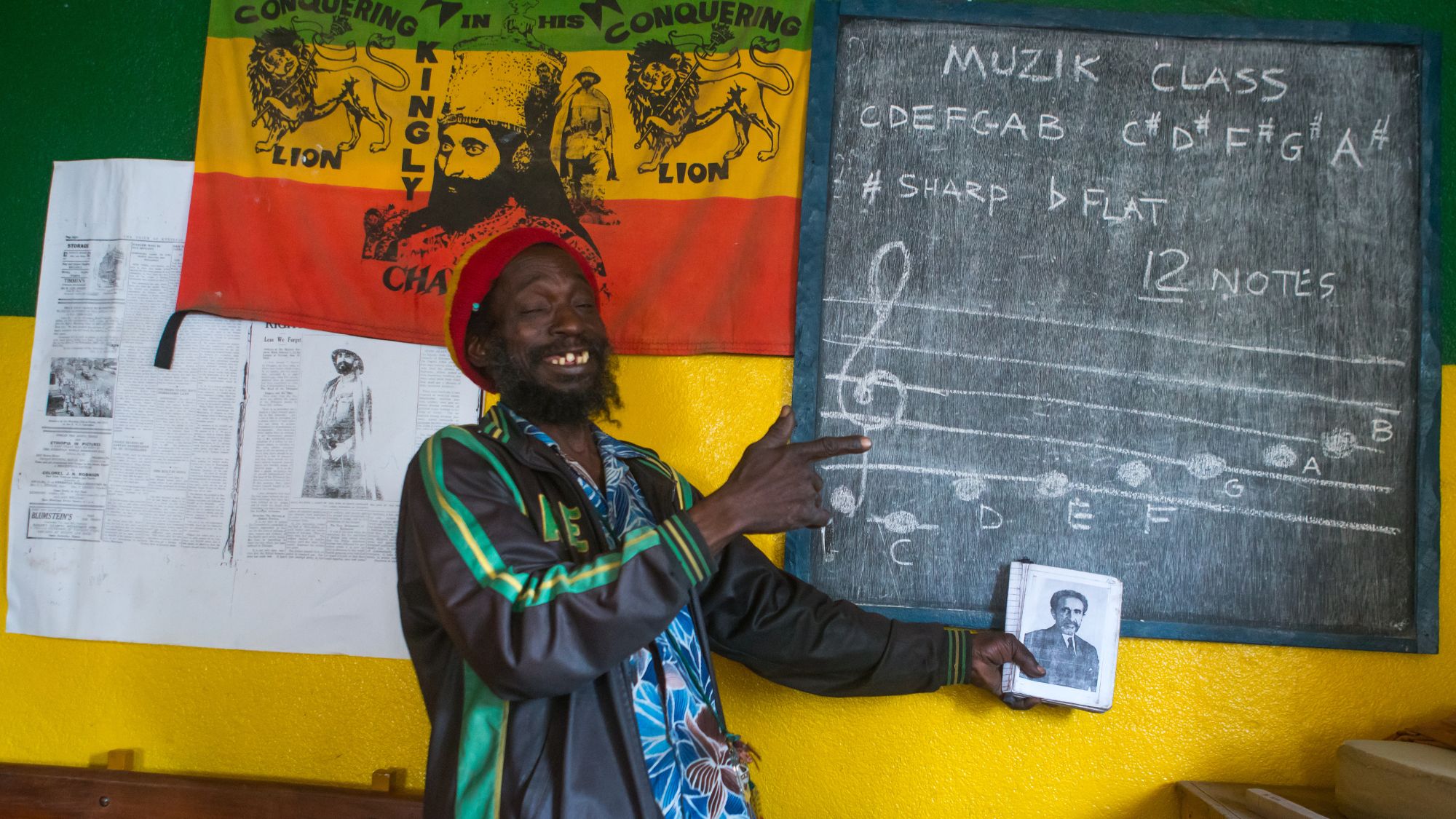Will Patois become Jamaica's official language?
Momentum is building to give Jamaica's most widely spoken dialect official status

A free daily email with the biggest news stories of the day – and the best features from TheWeek.com
You are now subscribed
Your newsletter sign-up was successful
As Jamaica continues to loosen its ties with the British monarchy, momentum is building to make Patois the country's official language alongside English.
The proposal was recently floated by the leader of the opposition People's National Party (PNP), Mark Golding, at the party's recent annual conference. Golding said Jamaica was suffering from "a language problem", adding that "part of the legacy of our colonial past is the belief that the Jamaican language, created by our own people, is somehow unworthy and only to be spoken by those who can't do better".
But, Golding continued, "it is time to move beyond that negative and backward way of thinking. It is time for Jamaica to formally recognise Jamaican as a language".
The Week
Escape your echo chamber. Get the facts behind the news, plus analysis from multiple perspectives.

Sign up for The Week's Free Newsletters
From our morning news briefing to a weekly Good News Newsletter, get the best of The Week delivered directly to your inbox.
From our morning news briefing to a weekly Good News Newsletter, get the best of The Week delivered directly to your inbox.
What is Patois?
Patois has been "long stigmatised with second-class status and often mis-characterised as a poorly structured form of English", said The New York Times (NYT). In fact, the language has its own distinct grammar and pronunciation, and linguists say it is as distinct from English as English is from German.
Patois "features a dizzying array of words borrowed from African, European and Asian languages", the paper added, and the intensifying debate around it "touches on issues of national identity, class divisions and the legacies of slavery in what was once one of Britain's most prized overseas possessions".
Why now?
In March last year, during a visit by Prince William and Kate Middleton, Jamaica's Prime Minister Andrew Holness announced that his country wanted to become fully independent.
"We are moving on," Holness told reporters in the capital, Kingston, as the royal couple stood by his side. "We intend to… fulfil our true ambitions and destiny as an independent, developed, prosperous country."
A free daily email with the biggest news stories of the day – and the best features from TheWeek.com
In May this year, Marlene Malahoo Forte, Jamaica's minister for legal and constitutional affairs, told Sky News that the coronation of King Charles had accelerated the country's plans to become a republic, and suggested that an "urgent" referendum could be held "as early as 2024".
For many commentators, Jamaica's moves to cut ties with the monarchy mean that the time is ripe for Patois to be properly recognised.
"If there was ever a time to definitively change the status of Jamaican Creole, it is now," said Oneil Madden, a linguist at Jamaica's Northern Caribbean University, in the NYT.
Pros and cons
Some supporters of Patois say that turning the language into an official tongue "will help instil more national pride in the Caribbean country", said the British African-Caribbean newspaper The Voice.
It would also allow Jamaicans to conduct official business in places like courts and tax offices in the country's most widely spoken language.
Grace Baston, principal of Campion College, which Caribbean National Weekly calls "one of the best high schools on the island", has lobbied for Patois to be a part of the education system, arguing for teachers and students to be trained in the language.
However, for critics, using Patois in schools could "put Jamaican students at a disadvantage when competing on the world stage", the paper added.
Adopting Patois as an official language could put Jamaicans at a disadvantage in areas such as trade, tourism and academic research, some have argued. "No serious foreign investor wants to communicate with someone in the Jamaican dialect," said Andrew Tucker, a former Spanish lecturer at Howard University, in a column for the The Jamaica Observer.
Influence abroad
Patois has spread internationally, particularly through the popularity of reggae and dancehall music. Writing for the BBC, African journalist Mark Wilberforce said "it is not hard these days to hear Ghanaians talking a little Jamaican Patois".
Last month Mark Golding cited Patois's importance in projecting the island nation's culture around the world.
"If it is loved abroad, why don't we respect it a yaad?" Golding asked in a speech which was full of Patois words such as "yaad", which means home.
According to The Voice, the promotion of Patois is as much a rallying cry as anything else. The next general election in Jamaica is scheduled for 2025, the newspaper noted, but already "Golding is hoping his promise of officially recognising Patois will help him become the country's next prime minister".
Arion McNicoll is a freelance writer at The Week Digital and was previously the UK website’s editor. He has also held senior editorial roles at CNN, The Times and The Sunday Times. Along with his writing work, he co-hosts “Today in History with The Retrospectors”, Rethink Audio’s flagship daily podcast, and is a regular panellist (and occasional stand-in host) on “The Week Unwrapped”. He is also a judge for The Publisher Podcast Awards.